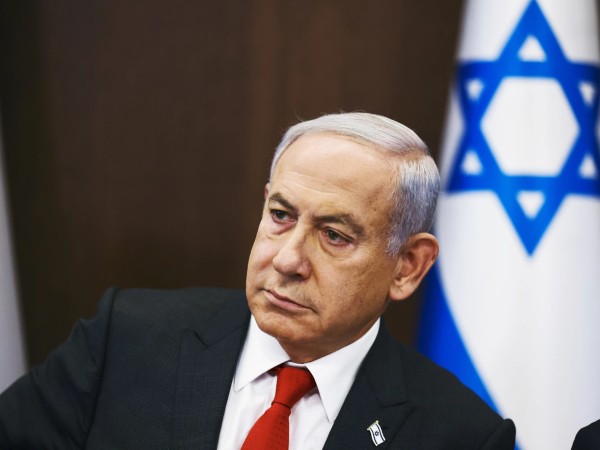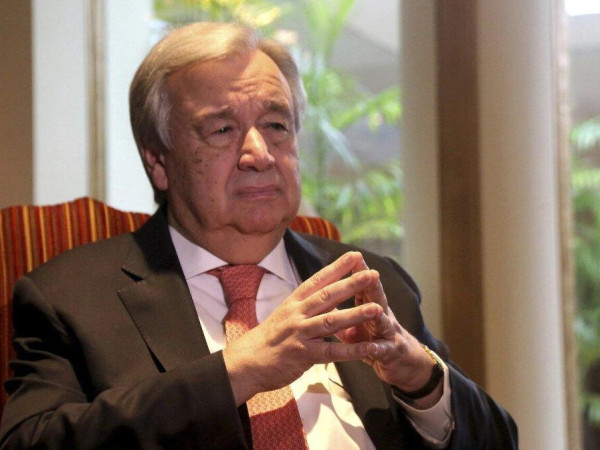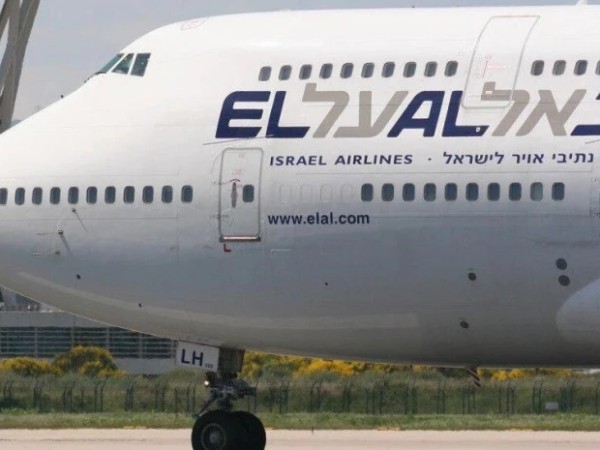The first days of the new year have already illustrated that the potential for wider conflict and escalation in the Middle East is a very real concern.
For instance, an airstrike on Damascus International Airport illustrates that Iran will continue to try to entrench in Syria in the coming year. In addition, the decision by an Israeli politician to visit the Temple Mount appeared ready-made as a potential incendiary decision that could lead to tensions. The Kingdom of Jordan has warned Israel against upsetting the status quo in Jerusalem.
Here is a list of some of the potential conflicts that could break out and peace deals that might be signed this year.
Another conflict with Hamas and Islamic Jihad
Iran emboldened Hamas and Palestinian Islamic Jihad to attack Israel in the past. In May 2021, Iran encouraged these terror groups to escalate tensions over Jerusalem during Ramadan. This resulted in a short conflict. It’s possible that Iran, under pressure at home due to protests and encouraged by new drone deals with Russia, could push Hamas to heat up a conflict with Israel.
Hamas continues to test rockets and continues to threaten Israel. Hamas may seek to destabilize the West Bank in order to cause this crisis to grow. PIJ has ample resources in Jenin and elsewhere. Constant attempts by Israeli security forces to keep these threats in check are important, but they can always boil over.
A breakdown in Palestinian control, rise of violence in West Bank
The last year has seen a massive increase in violence in the West Bank. While most of this was contained and took place in clashes between the IDF and terror groups and armed gangs in Jenin and Nablus, it is possible that the Palestinian Authority is losing its grip.
Although the PA security forces were trained by the US and Palestinian police have been trained by the EU, the authority itself is losing its grip. Its aging leadership is out of touch. This means that enterprising young men, armed with the flood of illegal weapons that have been a phenomenon of late in the West Bank, could begin to challenge the authorities.
This could lead to violence in which Ramallah asks Israel quietly for more support. With a new right-wing government, Israel’s actions to tamp down the violence could end up enflaming tensions. Jordan, angry about alleged changes in the status quo in Jerusalem could also seek to play a role, exacerbating the tensions.
Normalization with Saudi Arabia
There have been hints of a normalization agreement with Saudi Arabia ever since the Abraham Accords were announced. Riyadh was supportive of the peace deals with Bahrain and the UAE. This means that there are opportunities for Israel and Saudi Arabia to work together on many issues in the future.
Shared interests and economic issues underpin this relationship. However, Saudi Arabia has also been keen on a peace initiative that requires Israel to take bold steps in the West Bank. It’s not clear how Riyadh can climb down from proposals it supported two decades ago in relation to Israel withdrawing to the 1967 lines, with some changes, in exchange for full relations.
Riyadh may also need to find a way to appeal to the Palestinians in this respect. More likely than a huge peace deal would be some small steps towards normalization between Israel and Saudi Arabia.
Turkey-Syria reconciliation, backed by Moscow
A deal between Turkey and the Syrian regime may be in the works.
Recent meetings in Moscow between officials from the two states show that things are moving in that direction. Turkey had been supportive of Syrian rebels for many years but has sought to channel the rebels into a proxy force to fight the US-backed Syrian Democratic Forces.
Ankara’s main goals today in Syria are to return Arab refugees from Turkey to Syria and to defeat Kurdish forces in Syria. Ankara views the Kurdish YPG as “terrorists” and it prefers the Syrian regime. Turkey could get backing from Russia through more energy or weapons deals and come to some kind of agreement with Syria in which the regime agrees to suppress the YPG and both Turkey, Iran, Russia and the regime agree to work against the US role in eastern Syria.
This could set in motion a new Turkish invasion, but could also lead to other types of troubles such as destabilization of eastern Syria and prison breaks by ISIS members.
Yemen and Libya
Yemen and Libya are both in the midst of civil conflicts where temporary agreements or ceasefires have reduced the conflict in the last year. In Yemen, Iran backs the Houthis. The Houthis are fighting the Saudi-backed Yemen government. The UAE also plays a role.
It’s unclear how an agreement in Yemen can succeed beyond a ceasefire because the two sides are very far apart. At the same time, Iran has hinted that it wants to use Yemen as a platform to threaten Israel.
In Libya, Egypt has backed the eastern Libyan forces led by Khalifa Haftar. Turkey has backed the government in Tripoli. However, there is more at work in Libya.
While there could be a deal there are also major differences. Turkey wants energy deals with the Libyan government and it has signed deals that put Turkey and Greece on a collision course for potential conflict. Furthermore, France, Russia and the US have an interest in what is happening in Libya.
Turkey-Greece tensions
Turkey has been threatening Greece with invasion and armed conflict for years. Some see this as merely propaganda by Ankara, using anti-Greek sentiment to get votes for the ruling AKP party.
Both countries are members of NATO and it’s highly unusual for NATO members to stoke wars with other NATO members for elections. Turkey’s threats have grown in the last years, including incursions by Turkish planes. Turkey claims that Greece is at fault, but the track record of Ankara threatening others, including Israel, Armenia and Egypt, shows that Ankara is doing more than just talking, it is actually threatening.
On the other hand, Turkey has worked to restore ties with Israel, likely trying to use those ties to reduce energy deals between Israel and Greece and Cyprus and trying to re-route Israeli trade via Turkey to make Israel dependent on Ankara in future energy developments off the coast of Israel.
With Netanyahu back in power, it’s unclear if Ankara will have as much success encouraging the Israeli relationship and using pro-Israel voices to lobby for Ankara. As such, Ankara may sense that a return to tensions with Greece, and even Israel, could benefit Turkey.
Azerbaijan and Armenia
After the 2020 war between Azerbaijan and Armenian forces, the Armenians in Nagorna-Karabakh have faced an increasing siege. The Armenian minority in this region is an ancient community but due to Soviet-era decisions, these people find themselves in a disputed area claimed by Azerbaijan. After the 2020 war, the Armenian community was left with only one road connecting it to Armenia.
Protesters and nationalists in Baku have been occupying the road and making it difficult for the people of Nagorna-Karabkah to live a normal daily life with trade and energy and other things that people need. Baku claims that it is merely laying claim to its area and these protesters are environmentalists concerned about mining in the area.
Russia, which is supposed to be guaranteeing peace, is actually fanning the flames of conflict - as is Turkey.
Like in Syria and Ukraine, the overall role of Russia and Turkey tends to be Janus-faced, they may appear on one side or the other, but they profit off the conflict. For minorities like the Armenians, this means daily life is at the whim of Moscow, Ankara and other powers. It’s possible that more pressure on Nagorna-Karabakh could lead to more conflict or force people to flee. Armenia is isolated and poor and its army doesn’t have the resources to confront another major conflict with Azerbaijan. Russia has made Yerevan dependent and prefers to break its will to make it even more dependent.
Russia-Iran-US tensions in Syria
Russia is dealing with the fallout from its war in Ukraine. It is plausible that it could seek a distraction in Syria. This could mean enabling Iran to move air defenses to Syria or enabling a new Turkish invasion as a way to erode support for the US in eastern Syria.
The Biden administration doesn’t want eastern Syria to be a distraction to its preference for confronting “near-peer” adversaries like China and Russia. Russia knows this and it could stoke tensions in Syria in order to weaken US resolve. This could also set up potential tensions with Israel. The new Netanyahu government prefers fewer tensions with Moscow and could find itself in the middle of the machinations of Russia, Iran and Turkey.
Source: Jerusalem Post















